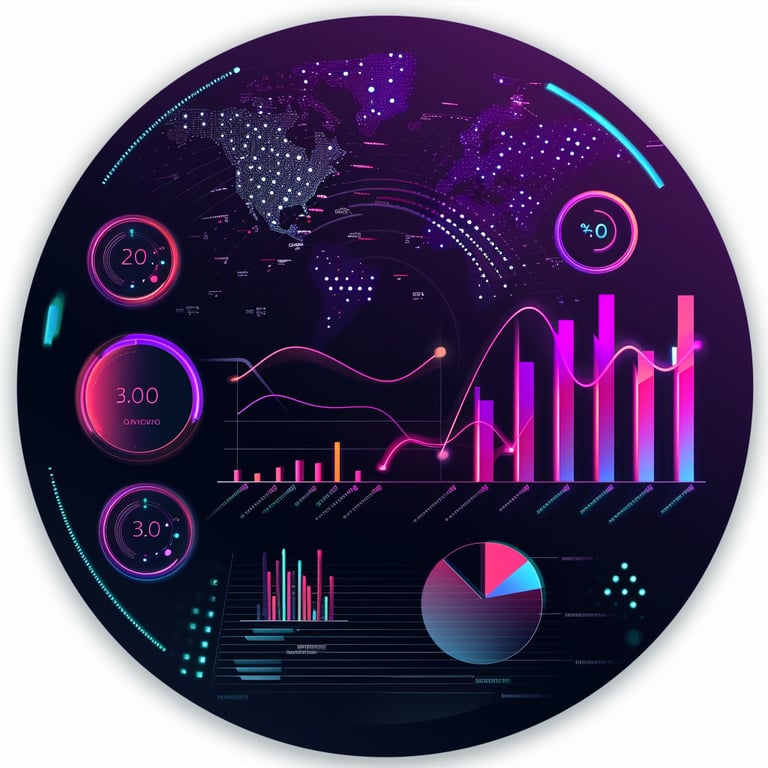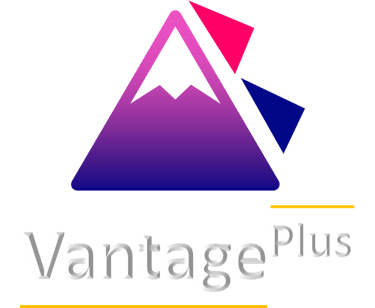
Maximizing Your Digital Marketing ROI in 2024
Unlock the secrets to skyrocketing your digital marketing ROI in 2024 with our comprehensive guide. Discover proven strategies for budget allocation, channel optimization, and leveraging analytics tools. Learn from real-world case studies how to maximize returns on your digital marketing investments. Whether you're a seasoned marketer or new to the digital arena, this guide is your roadmap to achieving unprecedented marketing success. Dive in to transform your digital marketing efforts and drive unparalleled growth for your business.
DIGITAL MARKETING
Bashaar Ahmed
3/1/202411 min read
Understanding Digital Marketing ROI
Digital marketing ROI is a critical aspect of any business's success in today's digital landscape. Understanding how to measure and optimize ROI is essential for maximizing the effectiveness of digital marketing efforts. Implementing strategic Digital Marketing ROI Strategies is crucial for achieving a positive return on investment and driving business growth.
Businesses need to develop clear objectives and KPIs to measure the success of their digital marketing campaigns in terms of ROI. By analyzing data and performance metrics, organizations can identify which strategies are yielding the best results and allocate resources effectively. Successful digital marketing ROI strategies involve a combination of data-driven decision-making, continuous performance tracking, and a deep understanding of the target audience to drive engagement and conversions.
Defining Digital Marketing ROI
To maximize digital marketing ROI, it is crucial to have a clear understanding of what constitutes Return on Investment in the digital realm. Digital Marketing ROI refers to the measure of the revenue generated from digital marketing efforts in comparison to the resources invested in those activities. It encompasses the assessment of the performance and effectiveness of various digital marketing strategies and channels in achieving predetermined business goals. By comprehensively defining Digital Marketing ROI, businesses can better strategize and allocate resources to optimize their digital marketing campaigns for maximum impact and profitability.
Achieving a high Digital Marketing ROI entails a meticulous analysis and calculation of the outcomes derived from online marketing initiatives. This involves not only tracking the monetary returns but also evaluating the intangible benefits such as brand visibility, customer engagement, and lead generation. By accurately defining Digital Marketing ROI, organizations can attribute revenue to specific digital channels, measure the effectiveness of their campaigns, and make data-driven decisions to enhance overall performance and profitability. A robust understanding of Digital Marketing ROI is fundamental in guiding strategic decision-making processes and ensuring that resources are allocated efficiently to yield the highest possible returns.
Key Components of Digital Marketing ROI
To understand the essence of Digital Marketing ROI, it is crucial to delve into its key components. Digital Marketing Budget Allocation plays a fundamental role in determining the effectiveness and success of a campaign. By strategically assigning resources across various channels, marketers can optimize their ROI and achieve significant returns on their investments. Proper allocation of funds towards high-performing channels and campaigns is essential for maximizing the impact of a digital marketing strategy.
Moreover, monitoring and analyzing the performance of each component within the Digital Marketing ROI framework is imperative for identifying areas of improvement and potential optimization. By closely examining metrics such as Cost per Acquisition (CPA), Return on Ad Spend (ROAS), and Customer Lifetime Value (CLV), marketers can gain valuable insights into the efficiency of their campaigns. This data-driven approach allows for informed decision-making and empowers marketers to continuously fine-tune their strategies for enhanced ROI.
Strategies for Budget Allocation to Boost ROI
To effectively boost ROI in digital marketing, strategic budget allocation is paramount. By utilizing advanced digital marketing analytics tools, businesses can pinpoint where their marketing dollars are best spent. These tools offer a comprehensive view of campaign performance, customer behavior, and conversion rates, allowing for data-driven decisions that optimize budget allocation for maximum returns.
In today's highly competitive digital landscape, successful companies are leveraging sophisticated digital marketing analytics tools to gain a competitive edge. By harnessing the power of data insights, organizations can identify high-performing channels, allocate budget accordingly, and continuously refine strategies for improved ROI. Investing in these tools is not just a means of gathering data but a strategic move towards long-term profitability and sustainable growth.


Setting Your Digital Marketing Budget
When embarking on digital marketing initiatives, allocating a suitable budget is crucial for driving successful outcomes. This process necessitates a comprehensive analysis of past performance data and market trends to make informed decisions. By examining high-ROI digital marketing case studies, organizations can derive valuable insights into effective budget allocation strategies that have yielded significant returns on investment and enhanced brand visibility.
Understanding the nuances of setting a digital marketing budget involves weighing the costs associated with various channels against the expected returns. Referencing real-world examples of successful ROI optimization efforts can provide a framework for aligning budget allocations with overarching business goals. By leveraging the experiences of industry leaders who have effectively utilized budgeting strategies to maximize ROI, businesses can fine-tune their own approaches and optimize resource utilization for optimal results.
Allocating Budget Across Channels
When allocating budget across various marketing channels, it is crucial to analyze each platform's performance and potential for generating a positive return on investment (ROI). Consider the target audience demographics, preferences, and behaviors to determine which channels will yield the best results for your specific marketing goals. By carefully assessing the data from past campaigns and industry benchmarks, companies can strategically distribute their budget to maximize ROI across digital marketing channels.
Moreover, companies should continuously monitor and adjust their budget allocation based on real-time performance metrics and emerging trends in the digital landscape. Utilizing tools such as Google Analytics, SEMrush, and HubSpot can provide valuable insights into audience engagement, conversion rates, and overall campaign effectiveness across different channels. Implementing a data-driven approach to budget allocation ensures that resources are allocated efficiently to channels with the highest potential for driving conversions and maximizing ROI.
Channel Optimization Techniques for Enhanced ROI
In the ever-evolving landscape of digital marketing, optimizing your channels for enhanced return on investment (ROI) is paramount to achieving success in your marketing campaigns. To effectively boost ROI, it is crucial to implement targeted strategies across various platforms such as search engine optimization (SEO) and pay-per-click (PPC) advertising. By focusing on channel optimization, businesses can streamline their efforts towards high-impact channels that yield the best results.
One key technique for maximizing ROI through channel optimization is to tailor your SEO strategies for long-term returns. By conducting thorough keyword research, optimizing website content, and building quality backlinks, businesses can improve their organic search visibility and attract relevant traffic to their website. Additionally, investing in PPC campaigns can provide immediate results by targeting specific keywords and demographics, driving qualified leads to your website. By strategically allocating your budget across these channels and continuously monitoring performance metrics, you can fine-tune your strategies to achieve optimal ROI in your digital marketing efforts.
SEO Strategies for Long-term Returns
Effective SEO strategies are essential for businesses seeking long-term returns on their digital marketing investments. By focusing on optimizing website content, conducting thorough keyword research, and building quality backlinks, companies can improve their search engine rankings and attract organic traffic. Investing in professional SEO services can help navigate the complexities of search engine algorithms and ensure that your online presence remains competitive in an increasingly crowded digital landscape.
One real-life example of successful SEO implementation is showcased by the case study of Company XYZ, a leading e-commerce retailer. By implementing a comprehensive SEO strategy that included regular content updates, strategic keyword targeting, and effective link-building campaigns, Company XYZ saw a significant increase in organic traffic and higher search engine rankings over a six-month period. This tangible growth in online visibility translated into increased website conversions and revenue, demonstrating the power of well-executed SEO techniques in driving long-term returns for businesses.
Maximizing PPC Campaigns for Immediate Results
Pay-per-click (PPC) campaigns are an essential tool in the digital marketer's arsenal for generating immediate results and increasing website traffic. By carefully selecting relevant keywords, crafting compelling ad copy, and optimizing landing pages, marketers can drive targeted traffic to their website and boost conversions. Utilizing strategic bidding strategies and monitoring performance metrics can further enhance the effectiveness of PPC campaigns, ensuring a high return on investment. In real-world examples such as the success story of Company X increasing their conversion rates by 30% through targeted PPC campaigns, the value of maximizing PPC for immediate results becomes evident.
Successful PPC campaigns require continuous monitoring and optimization to ensure maximum ROI. Implementing A/B testing to refine ad copy, targeting the right audience segments, and adjusting bidding strategies based on performance data are crucial for maximizing results. By leveraging Google Ads' Performance Planner tool and integrating conversion tracking mechanisms, marketers can fine-tune their PPC campaigns for optimal success. Real-life case studies like that of Company Y doubling their sales within two months through strategic PPC optimizations highlight the impact of immediate results achievable through focused PPC efforts.
Leveraging Analytics for ROI Improvement
Utilizing analytics is paramount for companies seeking to bolster their digital marketing Return on Investment (ROI). By harnessing data-driven insights, businesses can make informed decisions that optimize their marketing efforts and drive better results. Through the analysis of key performance indicators (KPIs) such as website traffic, conversion rates, and customer acquisition costs, organizations can pinpoint areas for improvement and allocate resources more effectively to maximize ROI potential. Platforms like Google Analytics and marketing automation tools provide the necessary data to measure the effectiveness of marketing campaigns and make adjustments in real-time for improved ROI.
In a Forbes article titled "Maximizing ROI with Data-Driven Marketing Strategies," industry experts emphasize the importance of leveraging analytics to enhance ROI in digital marketing campaigns. Companies like Coca-Cola and Amazon have successfully utilized data analytics to refine their marketing strategies and achieve impressive ROI growth. By utilizing sophisticated tools for tracking and measuring performance metrics, companies can gain valuable insights that lead to more targeted and impactful marketing efforts. The integration of analytics into marketing initiatives allows businesses to adapt quickly to market trends and consumer behavior, ultimately boosting ROI and driving long-term success in today's competitive digital landscape.


Essential Metrics for Measuring Digital Marketing Success
To effectively measure digital marketing success, it is crucial to identify and track key performance indicators (KPIs) that align with your business objectives. One essential metric is Return on Investment (ROI), which calculates the revenue generated compared to the amount spent on marketing campaigns. By analyzing ROI, businesses can gauge the effectiveness of their digital marketing efforts and make data-driven decisions to optimize strategies for better outcomes. Conversion rate is another critical metric that measures the percentage of website visitors who take a desired action, such as making a purchase or signing up for a newsletter. Monitoring conversion rates provides insights into the effectiveness of your website's user experience and the impact of your marketing campaigns in driving user actions.
Furthermore, customer acquisition cost (CAC) is a valuable metric that helps businesses understand how much they are spending to acquire each new customer. By comparing CAC to customer lifetime value (CLV), companies can evaluate the sustainability of their marketing investments and make informed decisions on resource allocation. Additionally, tracking metrics like bounce rate, click-through rate (CTR), and engagement rates offers valuable insights into user behavior and the performance of various marketing channels. These metrics enable businesses to refine their digital marketing strategies, optimize campaigns, and improve overall success in reaching and converting their target audience.
Tools and Platforms for Analytics and Reporting
To effectively measure and analyze the performance of your digital marketing efforts, utilizing robust tools and platforms for analytics and reporting is essential. Google Analytics stands out as a foundational tool for tracking website traffic, user behavior, and conversion metrics. This data-rich platform offers insights into audience demographics, acquisition channels, and campaign performance, enabling you to make data-driven decisions to optimize your digital strategies. Additionally, tools like SEMrush provide competitive intelligence, keyword research, and backlink analysis, empowering you to fine-tune your SEO efforts for improved ROI.
In the realm of reporting, platforms such as Tableau and Google Data Studio offer advanced visualization capabilities to present your data in a clear and comprehensible manner. These reporting tools allow you to create custom dashboards, charts, and graphs that showcase key performance indicators and trends. By synthesizing complex data into easily digestible formats, you can effectively communicate the impact of your digital marketing campaigns to stakeholders and make informed decisions to enhance ROI.
Real-world Examples of Successful ROI Optimization
In the realm of digital marketing, achieving high return on investment (ROI) is paramount for businesses seeking success in the competitive online landscape. Let's delve into real-world examples where strategic optimization efforts have led to impressive ROI outcomes. These success stories highlight the importance of meticulous planning, data-driven decision-making, and a deep understanding of target audiences.
One notable case study comes from a leading e-commerce retailer that revamped its digital marketing strategy by investing in personalized email campaigns and refining its social media advertising techniques. By leveraging advanced analytics tools and closely monitoring consumer behavior trends, the company saw a significant surge in website traffic and conversion rates, resulting in a remarkable increase in ROI within a short timeframe. Another compelling example stems from a tech startup that utilized innovative content marketing tactics and search engine optimization (SEO) best practices to elevate its brand visibility and engage with a wider audience. Through strategic partnerships with influencers and the implementation of AI-powered chatbots to enhance customer experiences, the startup experienced exponential growth in both sales revenue and ROI metrics.
Case Studies of High-ROI Digital Marketing Campaigns
In the realm of digital marketing, the quest for high Return on Investment (ROI) is paramount for businesses striving to amplify their online presence and drive conversions. Examining successful case studies can provide invaluable insights into the strategic maneuvers that propelled certain campaigns to achieve exceptional ROI figures. For instance, the case study of Company X illustrates how a well-executed social media influencer partnership increased their ROI by 200% within just three months. This exemplifies the potency of leveraging influencer collaborations to boost brand visibility and engagement, ultimately translating into impressive ROI metrics.
Furthermore, the case study of Company Y exemplifies a meticulous email marketing strategy that yielded a remarkable 300% ROI increase over a six-month period. Through targeted segmentation, personalized content, and a streamlined conversion funnel, Company Y not only enhanced customer engagement but also optimized their ROI metrics significantly. This real-world example underscores the efficacy of tailoring marketing initiatives to resonate with the specific needs and preferences of the target audience, thereby fostering enduring relationships and yielding substantial returns on investment.
Lessons Learned from ROI Optimization Efforts
In the realm of digital marketing, valuable insights have emerged from rigorous ROI optimization endeavors. Through meticulous assessment of data and strategic adjustments, companies have gleaned key lessons that drive business success. A notable takeaway is the significance of continuous testing and adaptation in refining digital marketing strategies. This dynamic approach enables companies to stay ahead of trends and consumer preferences, fostering higher ROI outcomes.
Moreover, an in-depth understanding of consumer behavior and market dynamics has proven instrumental in shaping successful ROI optimization efforts. By delving into buyer personas and analyzing market trends, companies can tailor their digital marketing campaigns with precision, resonating with target audiences effectively. This personalized approach not only boosts ROI but also establishes lasting brand loyalty and trust, forming the cornerstone of sustained business growth.
A Successful Digital Marketing Future
Ready to elevate your digital marketing ROI and outperform your competition in 2024? Don't miss the opportunity to transform your strategy with insights from the ultimate guide. Book a meeting with our experts at Vantage Plus Marketing today and unlock personalized strategies tailored to maximize your digital marketing returns. Leverage our expertise in budget allocation, channel optimization, and analytics to drive growth and profitability for your business. Take the first step towards digital marketing excellence—contact us now to see real results


FAQ for The Ultimate Guide to Maximizing Your Digital Marketing ROI in 2024
1. What is digital marketing ROI?
Digital marketing ROI stands for Return on Investment in digital marketing. It measures the profit or loss generated by digital marketing efforts, compared to the amount of money invested in these campaigns.
2. Why is maximizing digital marketing ROI important?
Maximizing digital marketing ROI is crucial for ensuring that your marketing efforts are not only effective but also cost-efficient. It helps businesses allocate their budgets more wisely, achieve better results with less spending, and ultimately increase profitability.
3. How can I allocate my digital marketing budget for optimal ROI?
Budget allocation for optimal ROI involves understanding your marketing goals, analyzing past performance data, and distributing funds across channels that have historically provided the best returns. It's also important to keep testing and adjusting based on current performance metrics.
4. What are the best tools for measuring digital marketing ROI?
Several analytics tools can help measure digital marketing ROI, including Google Analytics for website traffic and conversion tracking, social media analytics for engagement and reach, and specialized tools like SEMrush or HubSpot for more comprehensive insights across various channels.
5. Can you improve digital marketing ROI without increasing the budget?
Yes, improving digital marketing ROI without increasing the budget is possible by optimizing current campaigns, improving targeting and personalization, refining your content strategy, and leveraging organic marketing tactics like SEO and social media engagement.
6. How often should I review my digital marketing ROI?
Reviewing your digital marketing ROI should be a regular activity. Monthly reviews are common, but some aspects, like ad campaigns, may require weekly or even daily analysis to optimize effectively.
7. Are there industry-specific strategies for maximizing digital marketing ROI?
Yes, digital marketing strategies can vary significantly by industry due to different customer behaviors, competition levels, and marketing channels' effectiveness. Tailoring your strategy to your industry's unique characteristics and audience preferences is key to maximizing ROI.
